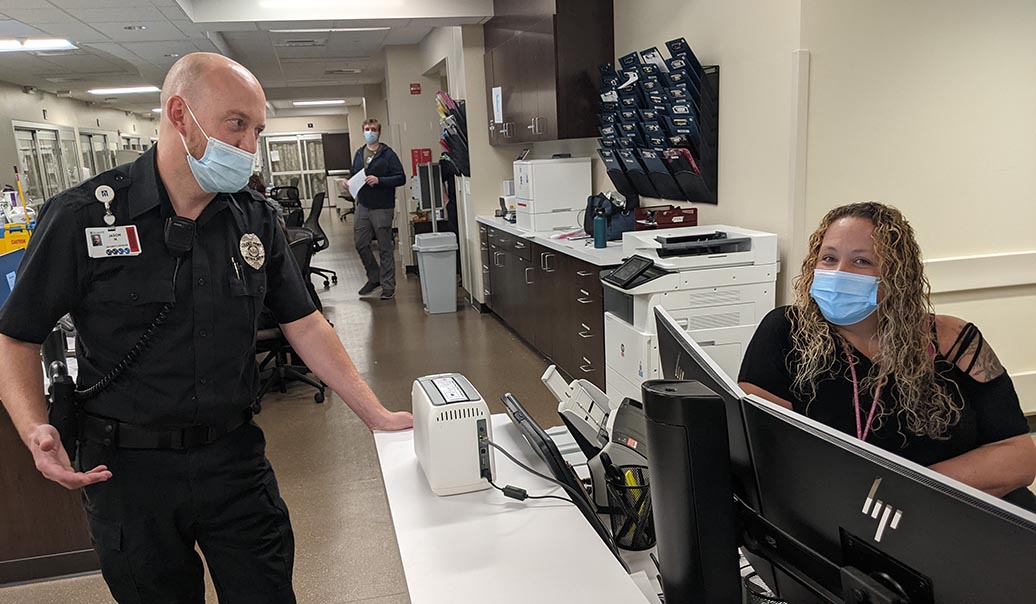Share:
How security rounding is easing employees’ minds

Over the past year, Asante has been focused on addressing workplace violence prevention in health care and to address the requirements of a new state law to reduce violence in health care facilities. Leaders at the system and entity levels have held many discussions and created action plans to address aggressive behavior in the workplace. One of the first pilot programs to come out of this work is security purposeful rounding.
Security purposeful rounding is a concept that combines security presence and communication plans with care teams to better prevent and address aggressive situations before they escalate.
Asante piloted this program at ATRMC from March 24 to July 2. The goal was to engage staff and open dialog on activities in the caregiving space.
Before the pilot began, hospital Security monitored daily activity through a large network of cameras and infrequent rounding through the units. The intent of purposeful rounding was to move rounding practices to frequent in-person conversations and interactions. This not only opened lines of communication, but also reassured caregivers that Security was readily available and monitoring activities.
In the three months before the pilot, the hospital reported 195 psych assist calls and 27 code grays. After the pilot began, psych assist calls dropped to 140 and code grays to 14. That’s a 29% decrease in psych assists calls and a 48% decrease in code gray calls in just a few months.
ATRMC Security notes an increase in behavioral health patients over that period, especially in juvenile females. Calls for security to be on standby in the ED also slightly increased during these timeframes, showing a higher frequency of behavioral patients.
A survey was sent out to ATRMC staff at the conclusion of the pilot to verify if the program made a noticeable difference. Eighty-four percent of respondents noticed an increased security presence during the pilot and said the presence was helpful in their departments.
These results indicate that purposeful rounding practices help open lines of communication and create a sense of comfort between care teams and security officers. There may be other factors that aided the results, but staff members’ sense of safety around aggressive individuals appears to have improved knowing that security officers are on site and readily available.
Because of the pilot’s success at ATRMC, AACH and ARRMC have also gone live with security purposeful rounding.
Having a security presence multiple times throughout the day and night strengthens relationships between staff members and security officers, and helps create a safe environment for all staff, patients and visitors.
If you have a question, please contact the author or relevant department directly.




1 Comment. Leave new
I absolutely love that there is a presence of security! It is like any workplace that has support seen, it makes a difference! Thank you for the continued support!